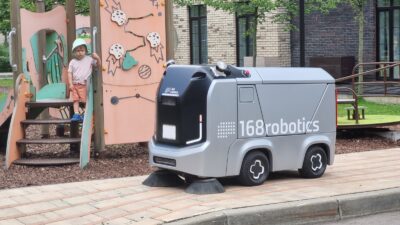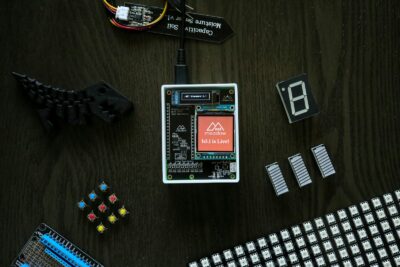Transforming Smart Homes with Edge Computing in Saudi Arabia and the UAE
The smart home automation market in the Gulf Cooperation Council (GCC), particularly in Saudi Arabia and the UAE, is experiencing unprecedented growth. This surge is driven by a confluence of factors, including rising disposable incomes, government initiatives promoting smart cities, and a growing tech-savvy population. At the heart of this smart home revolution lies edge computing, a technology that promises to significantly enhance the efficiency of smart home automation systems.
Understanding Edge Computing and Its Benefits
Traditionally, smart home automation systems relied on cloud computing, where data is processed in remote data centers. While cloud computing offers scalability and flexibility, it also comes with inherent limitations, such as latency and dependency on internet connectivity. This is where edge computing comes in. Edge computing involves processing data closer to the source, typically on the devices themselves or on local servers. This decentralized approach offers several advantages:
Reduced Latency
By processing data locally, edge computing minimizes the distance data needs to travel, resulting in significantly reduced latency. This is crucial for real-time applications like smart home security systems, where immediate response is essential.
Enhanced Reliability
Edge computing reduces dependency on internet connectivity, making smart home automation systems more reliable. Even if the internet goes down, essential functions can continue to operate seamlessly.
Improved Privacy and Security
With edge computing, sensitive data can be processed locally, reducing the risk of data breaches and ensuring greater privacy for homeowners.
Edge Computing in Action: Smart Home Use Cases
The benefits of edge computing are transforming the way smart home automation systems operate in the GCC. Here are a few noteworthy use cases:
Smart Security Systems
Edge computing enables faster response times for smart security systems, such as motion sensors and security cameras. This allows for quicker alerts and actions in case of a security breach.
Energy Management
Edge computing can optimize energy consumption in smart homes by analyzing real-time data from various sensors and devices. This allows for intelligent adjustments to lighting, heating, and cooling systems, resulting in significant energy savings.
Voice Assistants
Voice assistants like Amazon’s Alexa and Google Assistant are becoming increasingly popular in GCC homes. Edge computing enables these assistants to process voice commands locally, resulting in faster and more accurate responses.
The GCC Smart Home Landscape
The GCC region is witnessing a surge in the adoption of smart home technology. Governments in Saudi Arabia and the UAE are investing heavily in smart city initiatives, creating a conducive environment for the growth of the smart home market. In addition, the region’s young and tech-savvy population is eager to embrace the convenience and efficiency that smart home automation offers.
Government Initiatives
Saudi Arabia’s Vision 2030 and the UAE’s Smart Dubai initiatives are driving the development of smart cities, with a focus on sustainability, efficiency, and citizen well-being. These initiatives are encouraging the adoption of smart home technology, creating a large and growing market for edge computing solutions.
Market Growth
The smart home market in the GCC is projected to grow at a significant rate in the coming years. This growth is fueled by increasing disposable incomes, a growing awareness of the benefits of smart home automation, and the availability of affordable and user-friendly smart home devices.
Challenges and Opportunities
While the future of edge computing in smart home automation looks promising, challenges remain. These include standardization of protocols, interoperability of devices from different manufacturers, and ensuring robust security measures to protect against cyber threats. However, these challenges also present opportunities for innovation and growth in the smart home industry.
Standardization
The development of standardized protocols and interfaces for edge computing in smart homes will facilitate interoperability and simplify the integration of devices from different vendors.
Security
The implementation of robust security measures, such as encryption and authentication, is crucial to protect smart home systems from cyberattacks and ensure the privacy of user data.
Innovation
The smart home industry is ripe for innovation. Companies that can develop innovative edge computing solutions that address the unique challenges of the GCC market are poised to reap significant rewards.
Conclusion
Edge computing is revolutionizing the smart home automation landscape in the GCC. By enhancing efficiency, reliability, and privacy, edge computing is making smart homes smarter and more user-friendly. As the GCC continues its journey towards becoming a global hub for smart cities, edge computing will play a pivotal role in shaping the future of smart homes in the region.
#edgecomputing #smarthomeautomation #efficiency #SaudiArabia #UAE #Riyadh #Dubai #technology #IoT #smartcities























